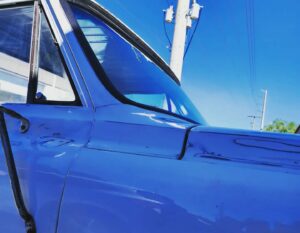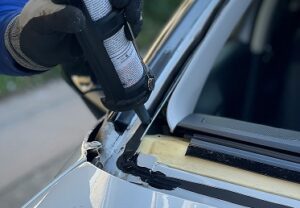As a crucial component of your vehicle, the windshield plays a significant role in ensuring safety and visibility while driving. However, it is constantly subjected to various environmental factors that can lead to damage. Understanding how these outdoor elements can affect your windshield is essential for maintaining the integrity of your car and prolonging the life of this vital glass. Read on to learn more.
Extreme Temperatures
One of the most damaging factors for windshields is extreme temperature fluctuations, which can significantly compromise the integrity of the glass. When windshields are exposed to intense sunlight, the glass heats up rapidly, causing it to expand quickly. This expansion can create stress points within the glass. In contrast, during cold weather, the glass contracts as temperatures drop. These rapid changes between expansion and contraction can lead to stress fractures or even complete shattering of the windshield, which poses a safety risk and can lead to costly repairs.
If you want to protect your windshield from these damaging effects, it’s advisable to park in the shade during hot weather, offering a cooler environment for the glass. Additionally, when faced with freezing conditions, it’s best to allow your vehicle to warm up gradually rather than turning on the heat at full blast right away. This gradual warming helps to reduce the risk of sudden temperature changes that can compromise the windshield’s structure, ensuring your vehicle remains safe and functional.
Road Debris
Another significant hazard for windshields comes from road debris, which poses a serious threat to vehicle safety. This debris includes everything from small stones and gravel to larger pieces of litter or construction materials that may be scattered across the road. When these objects are kicked up by the tires of other vehicles or even your own, they can strike the windshield with considerable force. This impact can lead to various forms of damage, including chips, cracks, or, in severe cases, complete breakage of the glass.
Drivers must be aware of their surroundings and maintain a safe distance from trucks or vehicles carrying loose materials, as these are more likely to send debris flying in your direction. Additionally, regular inspections of your windshield for any pre-existing damage can help prevent worsening conditions. Taking precautions, such as avoiding tailgating and being cautious in construction zones, can significantly reduce the risk of windshield damage from road debris.
Weather Conditions
Inclement weather can also take a toll on your windshield. Heavy rain can obscure your vision, making it difficult to see and leading to potential accidents. Additionally, hail can cause severe damage, resulting in pockmarks and cracks. Windy conditions can cause dirt and debris to swirl around, creating a higher risk of impact. Regularly checking your windshield wipers and keeping your washer fluid topped up can help mitigate the effects of rain. Seeking shelter during severe weather can also protect your car.
Environmental Pollutants
The outdoor environment is filled with pollutants, such as acid rain, bird droppings, and tree sap. Acid rain can gradually erode the glass, leading to a frosted appearance and decreased clarity. Bird droppings and tree sap can be particularly problematic, as they can create stains or even etch into the glass if not cleaned promptly. Regularly washing your car and using protective products can help shield your windshield from these damaging substances.
UV Radiation
Ultraviolet (UV) radiation from the sun can be surprisingly harmful to your windshield, impacting its longevity and performance. Over time, prolonged exposure to these harmful rays can lead to the degradation of the glass itself, as well as the deterioration of any protective coatings that may be applied, such as those designed to repel water or enhance visibility. This degradation can compromise the clarity of your windshield, making it increasingly difficult to see while driving, especially during bright sunlight or adverse weather conditions.
To effectively protect against UV damage, it is advisable to use a windshield sunshade whenever your vehicle is parked, as this can significantly reduce the amount of direct sunlight hitting the glass. Additionally, consider regularly applying UV protection treatments specifically designed for automotive glass. These treatments can create a barrier that helps to preserve the integrity of the glass, ensuring that your windshield remains clear and safe for optimal viewing while on the road. Taking these simple steps can go a long way in extending the life of your windshield and enhancing your overall driving experience.
Being aware of how the outdoor environment can damage your car’s windshield is key to ensuring its longevity and maintaining clear visibility while driving. By taking preventive measures, such as parking in the shade, keeping a safe distance from road debris, and protecting your car from extreme weather conditions, you can keep your windshield in top condition.
Text taken from: https://www.msglassoutlet.com




